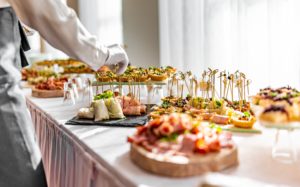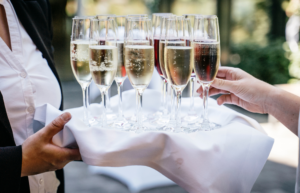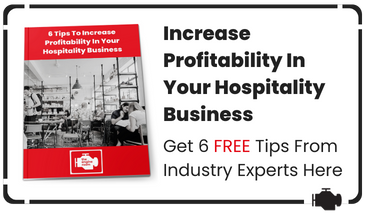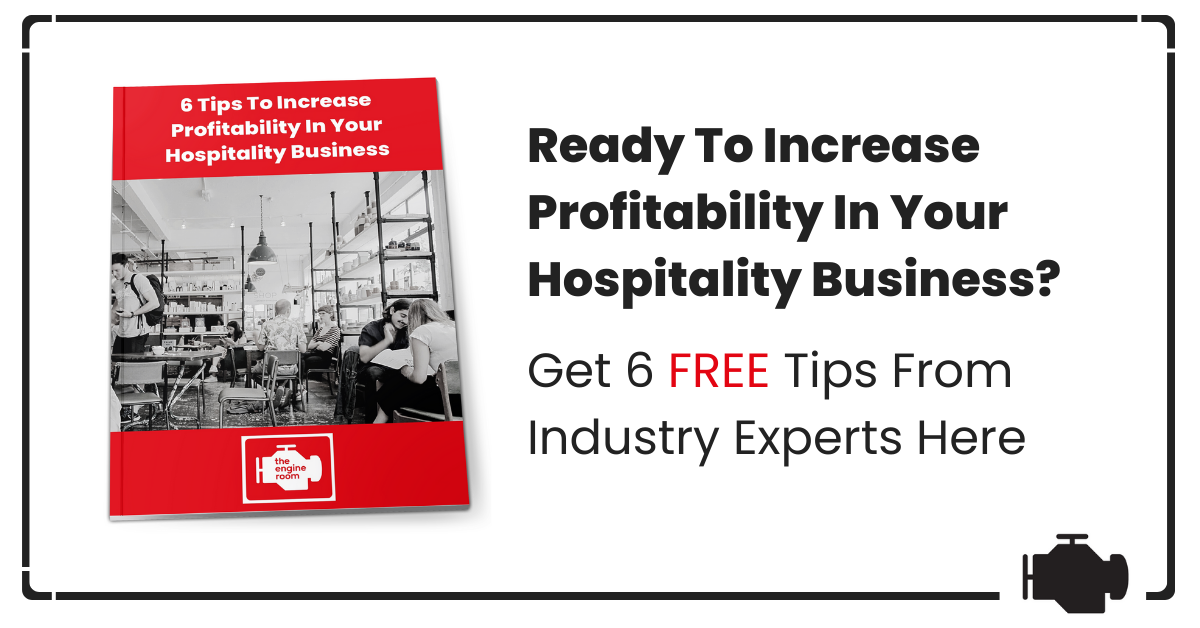Operations Costs and Menu Planning: The Keys to Profit in Events Catering

Balancing catering operations costs and menu planning is crucial to ensure profitability and sustainability in your business. Being knowledgeable about time management and quality-checking in all aspects of your catering company will be the key to elevating the standard of your services.
With the catering industry due for exponential growth in the next 3 to 4 years, fine tuning your operational plans has never been more essential. From understanding food and beverage expenses to navigating the intricacies of staff wages, rent, and marketing, each operating cost plays a significant role in keeping a catering business profitable.
Food & Beverage Costs
One of the primary components of catering operations costs is food and beverage expenses. These costs encompass the purchase of raw ingredients, beverages, and any other consumables and should always be incorporated into your catering business’ financial plan. To regulate these expenses, it is vital to establish relationships with reliable suppliers who can provide quality products at competitive prices.
Additionally, regularly reviewing your inventory and inspecting new produce to check whether suppliers consistently provide quality products can minimise your own wastage and help maintain customer satisfaction, which is imperative for repeat business.
Easy ways to optimise profitability is to design menus that use similar ingredients to maximise bulk buying and standardising portion sizes. These will both control costs and reduce waste.
Creating an experience that caters to diverse preferences and dietary requirements demands precise preparation and execution.
Understanding Your Audience
Understanding your audience is the first step in successful menu planning. Knowing their preferences and cultural tastes can help you design a menu that appeals to them.
Analyse past events, research event themes and stay updated with food trends to ensure your offerings resonate with your target demographic. Reaching out for feedback from a client after an event can also help to directly elevate your service.
Knowing Your Venue
The venue plays a pivotal role in menu planning. The kitchen facilities, available equipment, and floor plan will influence your menu choices. For instance, a venue with limited kitchen space may require a menu that emphasises cold dishes or items that can be easily prepared off-site. Being knowledgeable about the floorplan and access to the venue will be essential to servers navigating the event and the coordination of bringing food into the venue.
Understanding the available equipment and adjusting your menu accordingly will make sure you only choose dishes that can be served smoothly at an event – at the correct temperature or with the right utensils. Aligning your menu with the venue’s ambiance and event theme will also aid in creating a cohesive and memorable dining experience.
Service Style
Ensuring that your menu complements the service style of your catering event is integral to the success of your business. Each style has different implications for preparation time, serving logistics, and overall customer experience. Preparing adeptly for each experience will help to optimise for profitability by cutting down wage, consumable and equipment costs.
Seated meals call for well-balanced multi-course meals, whereas relaxed gatherings like barbecues or picnics, should opt for comfort or finger foods which encourage mingling between guests and ease of access.
Addressing dietary requirements is essential for seated dinners, offering vegan, gluten-free, and other specialty dishes not only broaden your customer base but also demonstrates your commitment to inclusivity and customer satisfaction.
Buffets and food stations provide varied options; however you should balance your offerings to make sure there are enough choices whilst not inducing decision fatigue or leaving guests without any food and forcing them to eat food they don’t like.
Stand-up style cocktail parties entail a selection of visually appealing appetisers, entrées and desserts suitable for satisfying a diverse group whilst being easy to serve.
Effective menu planning will help your business to optimise profits, as truly understanding who, when and where you will be serving can help you elevate your service and improve your operational functionality.
Kitchen Equipment Costs
Outside of perishable items, investing in kitchen equipment is one of the most decisive expenses in catering operations. High-quality, durable equipment can improve efficiency and reduce long-term costs. When planning your budget, consider both the upfront costs and the maintenance expenses of items such as ovens, refrigerators, and food processors.
Staff Wages & Salaries
Staff wages and salaries for the chefs, kitchen staff, waitstaff, bartenders, and any administrative personnel are a major component of catering operations costs. When overseeing these costs, it is important to schedule staff efficiently, provide adequate training to reduce turnover, and offer competitive wages to attract skilled workers.
Rent & Utilities
The location of your kitchen space can significantly impact your rent costs and affect the areas that your business serves. Negotiating favourable lease terms will keep your fixed costs down and researching the efficiency of the location will mitigate later costs from transport or equipment. Regular utilities like electricity, water, and gas are essential for daily operations, and implementing energy-efficient practices can help monitor these expenses.

Marketing & Advertising Expenses
Marketing is indispensable in attracting new clients and retaining existing ones. Marketing and advertising expenses might include online campaigns, print advertisements, social media promotions, and attending industry events. A well-planned marketing strategy can yield a high return on investment by increasing brand visibility and customer engagement.
Insurance, Permits & Licences
Operating a catering business requires various permits and licences for legal compliance and risk management. Additionally, insurance is essential to protect your business from potential issues and liabilities.
Cleaning & Maintenance Expenses
Maintaining a clean and well-functioning kitchen is necessary for both work-space hygiene and productivity. Cleaning and maintenance expenses include the cost of cleaning supplies, equipment maintenance, and possibly professional cleaning services. Regular maintenance can prevent further costly repairs and ensure a safe working environment.
Transportation
Transportation costs include fuel, vehicle maintenance, and potentially the purchase or lease of delivery vehicles. This component can be critical to your business, especially for event-day operations, therefore good route planning and regular vehicle maintenance can help control transportation expenses.
How the Engine Room Can Help Your Restaurant Business
At The Engine Room, our expertise in catering consultancy helps us bring useful new perspectives to your catering business that can help boost efficiency and profit. Our team works closely with yours to work out the operational and financial needs of your business.
If you are interested in gaining insight into how you can improve the profitability of your catering business, get in touch with our team on 020 8629 1594 or at enquiries@the-engineroom.co.uk.



